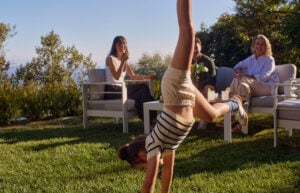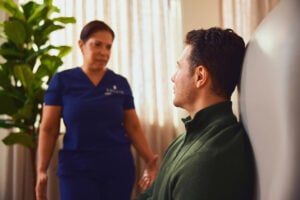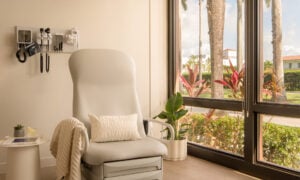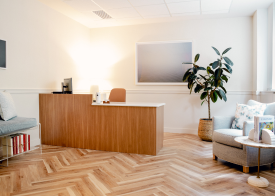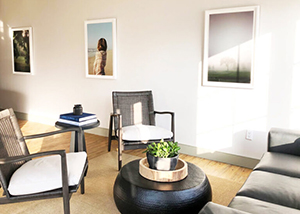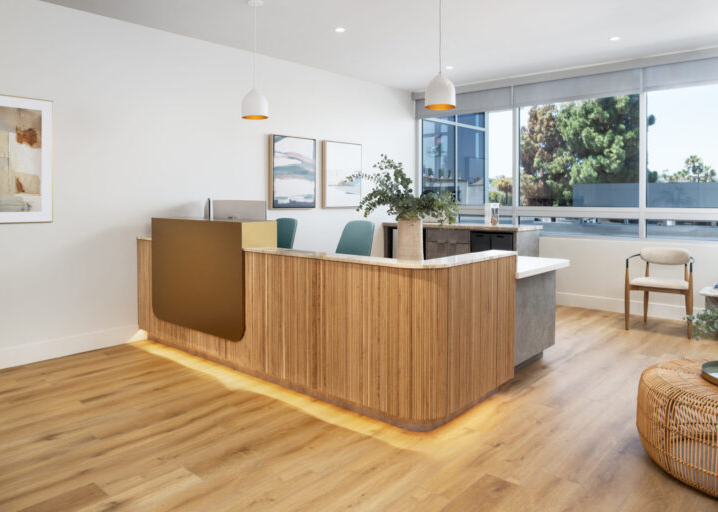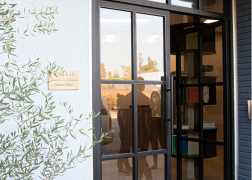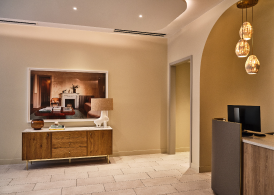When did you realize you had long-haul Covid? What were your worst enduring symptoms?
I am convinced I had Covid right at the very beginning, but obviously I couldn’t get tested back then. I never actually knew if I had it until I started reading about a lot of people losing their hair from it. And my hair was falling out in large handfuls. It was actually quite traumatic. And I was having heavy chest pain and it took a long time to go away. The symptoms kind of resembled anxiety, so I think a lot of people, including myself, couldn’t differentiate whether it was anxiety or actually Covid. A lot of people who know me just thought I was quite anxious. But the physical symptoms were chest pain and hair loss, things that did not go away for quite some time.How did it affect your life, from your daily routine to your emotional wellbeing?
Reading the news and being at home with young children and knowing how contagious it is and not knowing if you had it and how to contain it or keep it from spreading was just really worrisome. As a mom, your first priority is always your children. The not knowing and trying to keep them healthy and safe… my son felt like he had strep throat, and in children, usually you have to treat strep. So the doctor agreed to see him and when his test came back negative for strep throat, I assumed he had Covid as well. But I think just the un-knowing was quite stressful on families and everyone. I also had to build up tolerance to exercise in the beginning. It was very hard for me to exercise but I pushed through those feelings and really had to build up tolerance to any cardiovascular exercise. It took me quite some time.What did you do to treat it? Is there anything holistic you discovered that was useful—or anything you wish doctors had told you?
I don’t know if this is clinically proven or not, but I did take vitamin D, B 12, zinc, and all those kinds of things that were floating around the internet—some of the holistic approaches. So I don’t know if it was time or if it was effort, but eventually I did feel better.Were there any times you didn’t feel seen or heard by the medical community, or worse, times when you felt like you were being gaslit about your symptoms?
Not being able to be tested was really stressful for me, but I do have a doctor I see regularly and also consider a friend who was very helpful because she speaks truthfully with me and is able to read data, which I felt was really important. So the doctors that I know, I think they were all trying to keep up with learning as much as they could as quickly as they could, because even though they’re doctors it was still new to them. So I do give credit for this kind of intense schooling about the virus.“I see my children struggling in social situations where they just want to stay home, and they're codependent now with their computers and/or video games, and socializing might not be as important.”
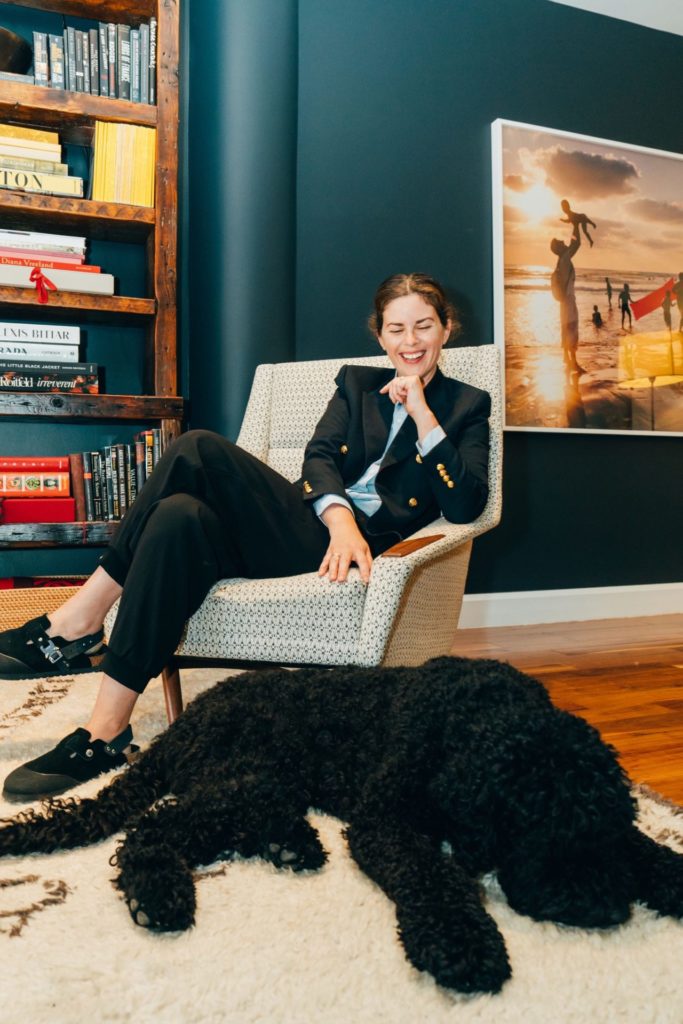
As a stylist, you’ve worked with everyone from Charlize Theron to Lea Seydoux. Did you ever have to turn down a job because long-haul Covid made you seem contagious, even though you weren’t? It was definitely a time when even just a cough in a public place could draw some dirty looks…
Well actually, I was scheduled to go to Los Angeles recently for a job and the night before my son tested positive for Covid. I called the client and explained my situation and said I had tested negative and was it okay for me to still come? I think people are not as scared anymore, so the answer was yes. And I did go but I tested every day and wore a mask and I never ended up getting Covid, but my husband did and my older son didn’t. So two people in the family had it and two people didn’t get it. I feel like there’s still no rhyme or reason to how people catch it or transmit it. There’s still so much unknown.
As a mother, how did you feel about the impact of Covid on your kids’ mental health? How did being trapped at home disrupt not only their lives but also their psychology, and how did you try to deal with it?
I think a lot of things came out of the pandemic for children, negative and positive. Unfortunately a lot of kids were at home and removed from school and that’s not only disruptive but very hard for young children to learn in that environment. Kids don’t have that type of concentration where they can sit in front of a computer and learn and do independent work all day. They were only teaching the children for 30 minutes a day and then the rest of the day was considered independent work. So as a mother, all of a sudden you become a teacher. And that was not great. It’s a hard dynamic with your child to go from mom to teacher. But it really makes you value teachers and how important they are to children. So in that respect, teachers were given credit by moms who were kind of expected to do their job, who realized how difficult and necessary a job it is. And then in terms of socializing, kids need to socialize with other kids. I know from experience, kids in middle school or high school—those years are where friendships are really important, and to have those taken away… I can only imagine that being really difficult on a child.
The positive for my family was that our life was moving really fast and I was traveling a lot and their dad was traveling a lot. So we were really given this time to be together as a family. And I think that’s eye opening for children who realize that when things happen and hard times come up, you really depend on your family. So it prioritized that for my children: how important family is. I think if we kept moving at that really fast pace, maybe they wouldn’t have learnt that lesson. Which is a lifelong lesson. So I’m grateful for that.
“The positive for my family was that our life was moving really fast and we were given this time to be together. And I think that's eye opening for children who realize that when hard times happen, you really depend on your family.”
